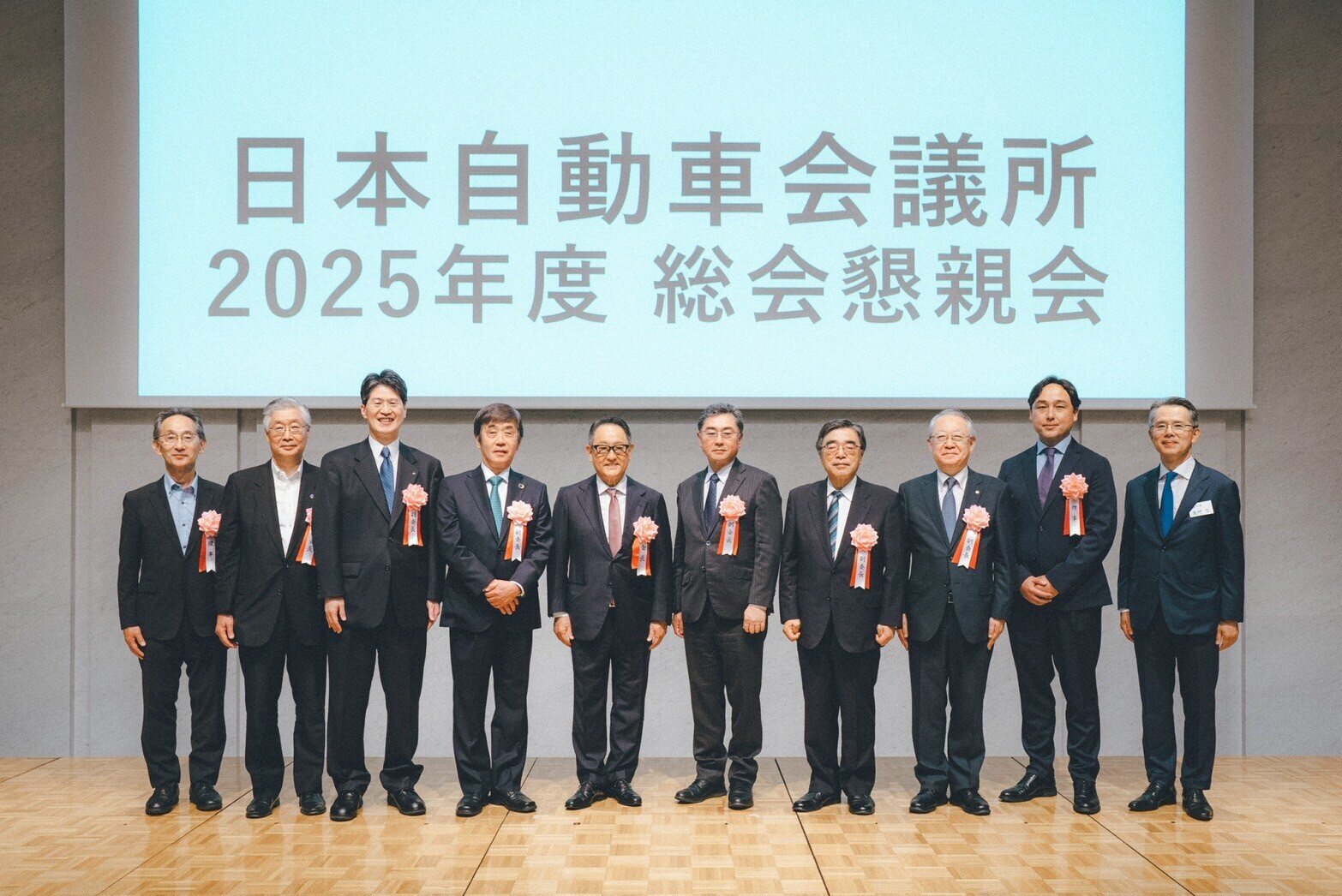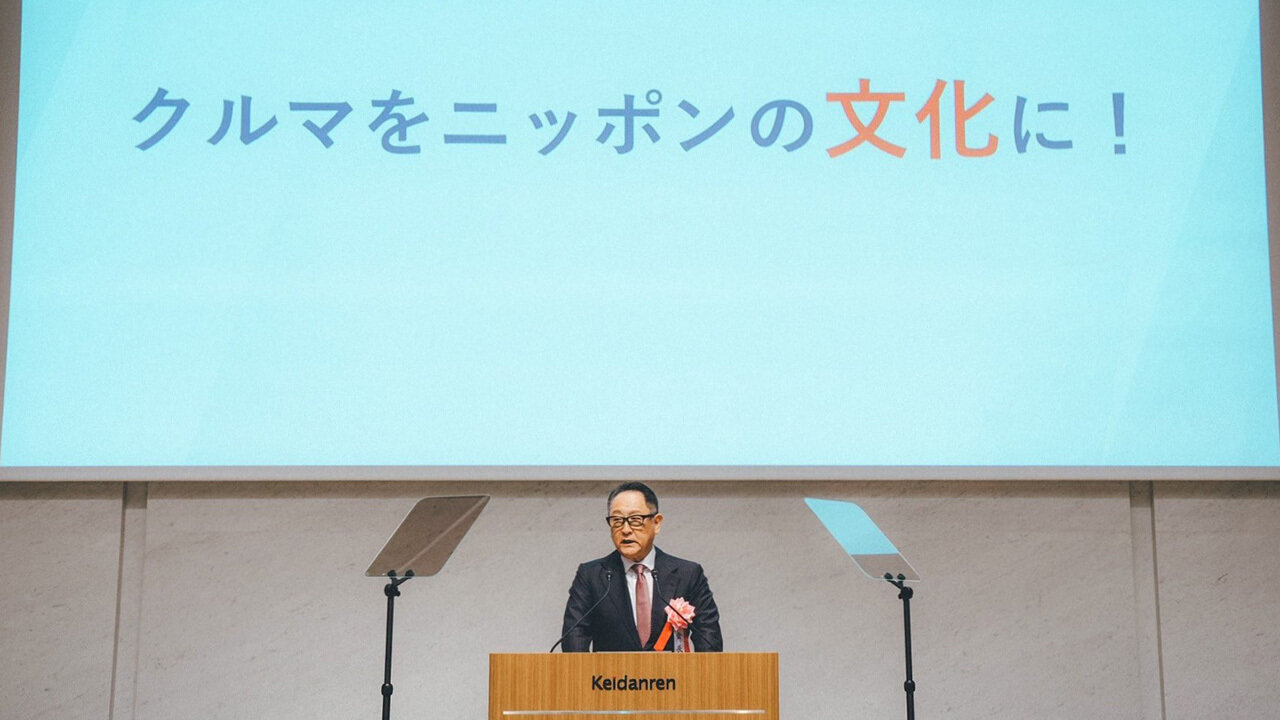
Chairman Akio Toyoda has taken up a new post leading the Automobile Business & Culture Association of Japan. In doing so, he pledged to make the cars that underpin Japanese life an essential part of the country's culture.

At its annual general meeting on June 10, the Automobile Business & Culture Association of Japan (ABAJ) announced that Akio Toyoda would succeed Takeshi Uchiyamada as the group’s chairman.
The ABAJ was established in 1946, soon after the end of World War II, building on the efforts of Kiichiro Toyoda in setting up its predecessor, the Automobile Association. With a 79-year history, this industry-spanning organization was born out of a strong conviction that the automotive sector would drive Japan's development.
At present, the association is made up of 166 automobile-related organizations and companies. For more on the history and purpose of ABAJ, please see our detailed analysis on Toyota Times Business.
In his inaugural address as the new chairman, Akio Toyoda spoke of creating a culture where every Japanese person can speak proudly of their country’s cars and suggested a slogan to guide these efforts. We share his speech in full.
Making cars the pride of Japanese culture
Incoming Chairman Toyoda
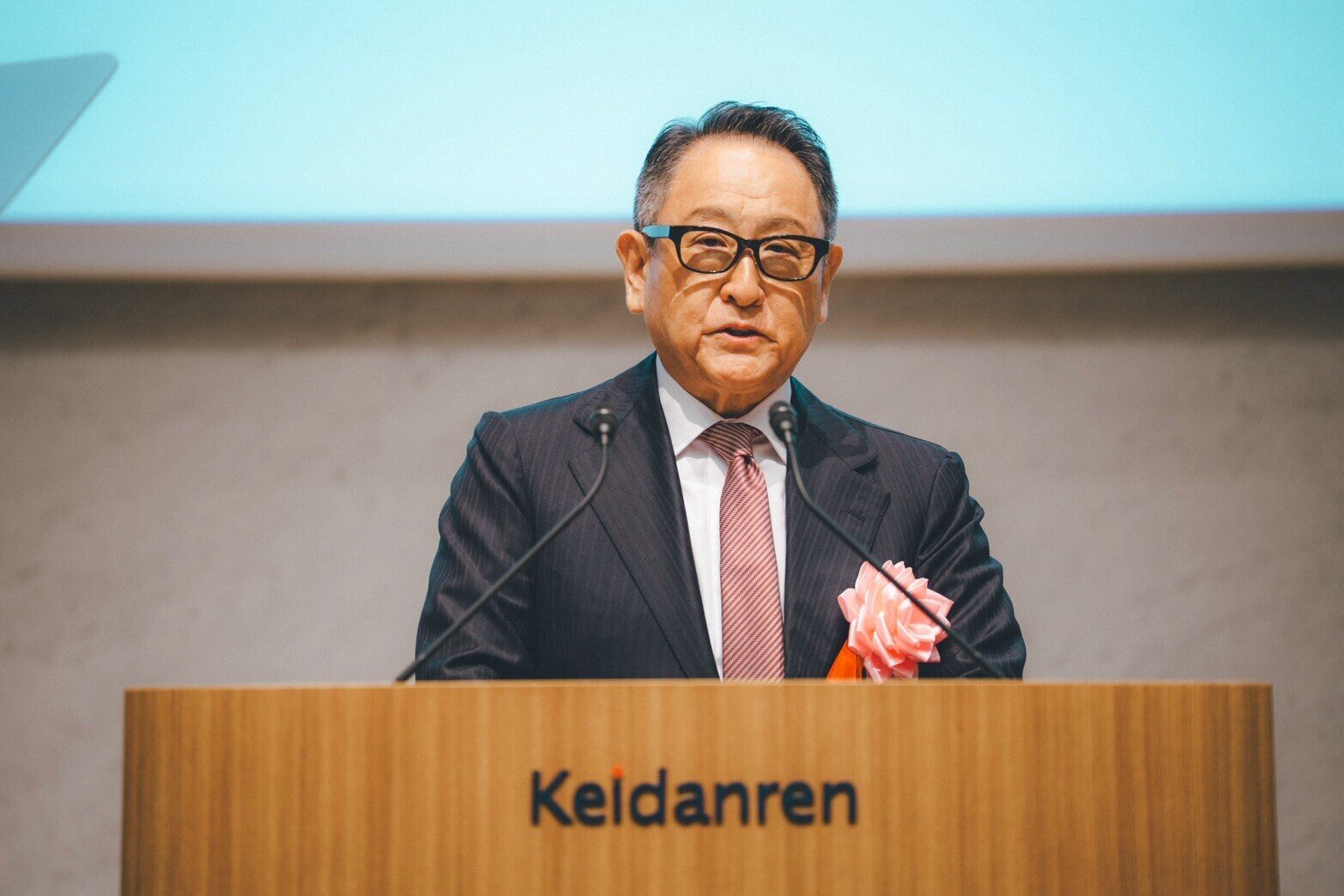
I’m Akio Toyoda. From today, I will be serving as chairman of the Automobile Business & Culture Association of Japan. I look forward to working with you all.
At the general meeting earlier, I shared with our members my slogan for the Automobile Business & Culture Association, and I would like to share it here as well. Here it is.
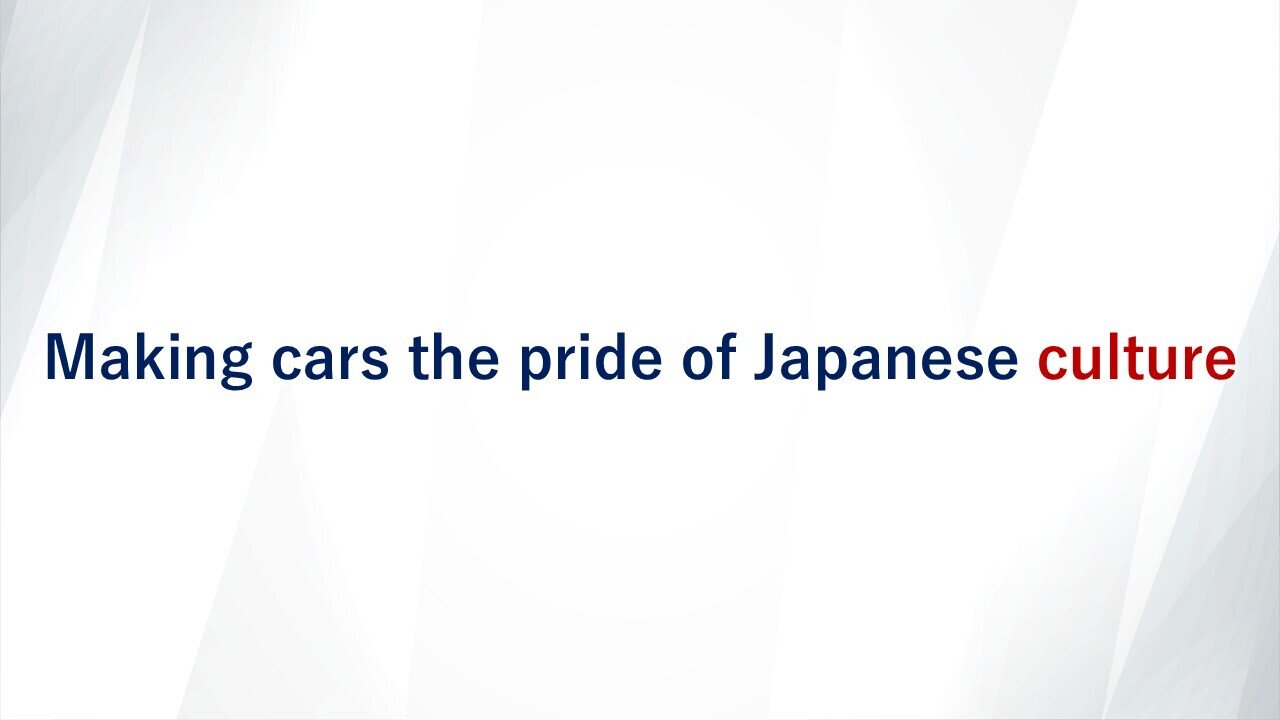
After being approached by the association, I looked back over its founding charter.
The first line of this document, written 79 years ago in 1946, reads:
“Cars are essential for sustaining people’s way of life and enriching the nation’s culture.”
With your continued support, cars today serve an indispensable role in the flow of people and goods in Japan.
At the same time, however, are they truly contributing to the country’s culture? I wasn’t so sure.
When I travel abroad, I am often asked what my country is like. If you were in that position, what aspects of Japan would you proudly put forward?
The four seasons, Japanese food, traditional arts, crafts, peace and safety—I think there is much to be proud of in this country. Perhaps anime is another recent addition.
I tried posing this question to AI, the latest sensation.
As you might expect, at the top of the list are culture, traditions, sights, and nature. Technology and industry come next. Within that, we finally see the auto industry.
Similarly, I asked where German pride lies.
Their biggest sources of pride are the country’s economy and technological capabilities, with automobiles as the star player.
I’m told that AI is trained on all of the information available online. If that’s the case, asking real German people will likely give you similar results.
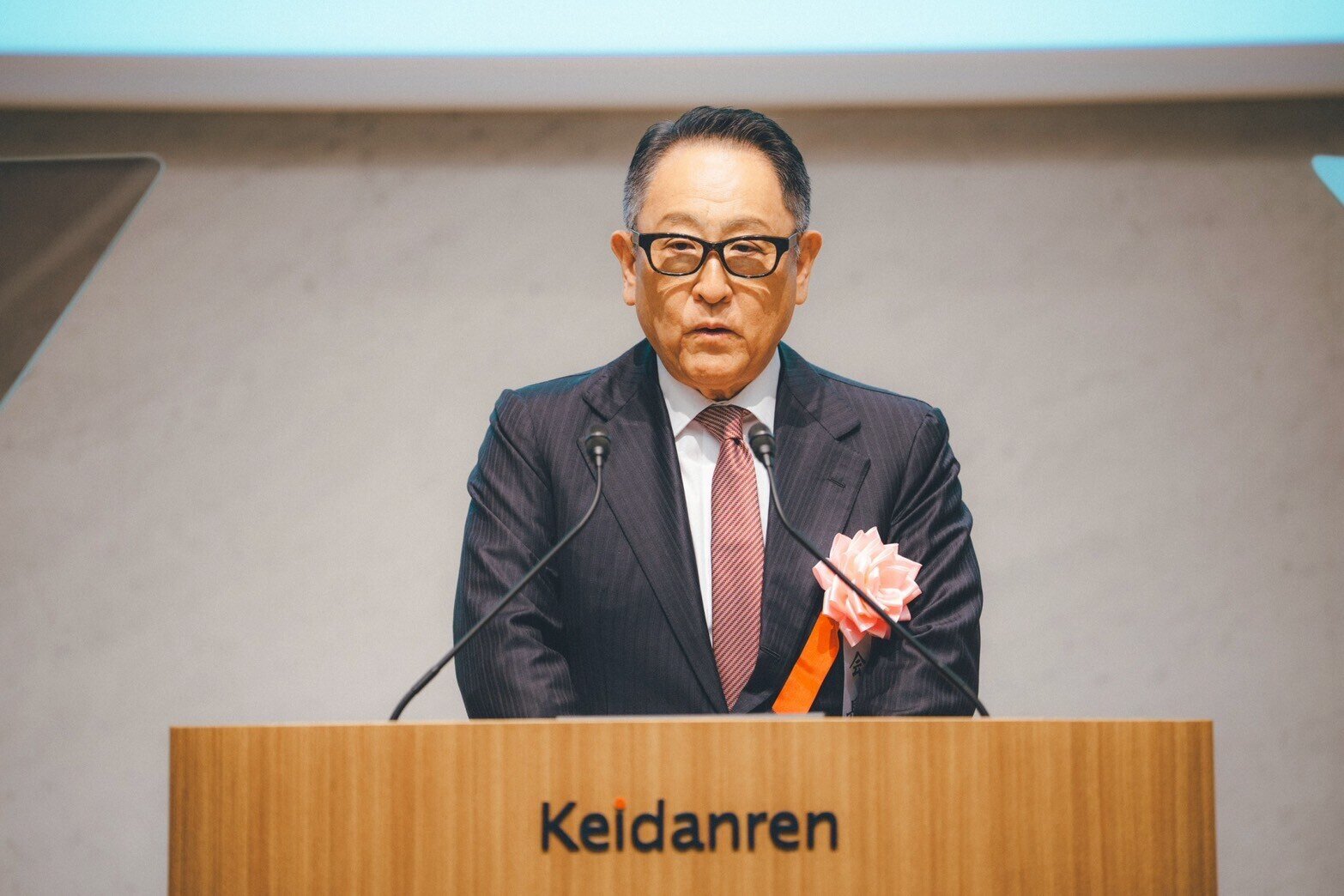
Seeing that made me envious of Germany. How wonderful it would be if Japan, like Germany, were a country where the first response was “Cars are our culture.”
If others spoke of cars as the “pride of our country,” wouldn’t that make us in the auto industry prouder of our work?
I want to bring us to a point where, when you ask most Japanese people what makes them proud of their country, they will respond, “Cars are the pride of Japan.”
To go a step further, I want to reach the stage where even AI gives the same answer.
“Making cars the pride of Japanese culture.”
I would like these words to serve as a slogan for the various activities we undertake as the Automobile Business & Culture Association of Japan.
I look forward to working with you.

ABAJ and JAMA
Incoming Chairman Toyoda expressed his determination to raise the status of cars in Japan and make them an object of pride as part of the country’s culture. He then went on to explain the difference between the Automobile Business & Culture Association of Japan (ABAJ) and the Japan Automobile Manufacturers Association (JAMA).
Incoming Chairman Toyoda
One final thing. I would like to go ahead and answer the question that everyone here is no doubt wanting to ask Akio.
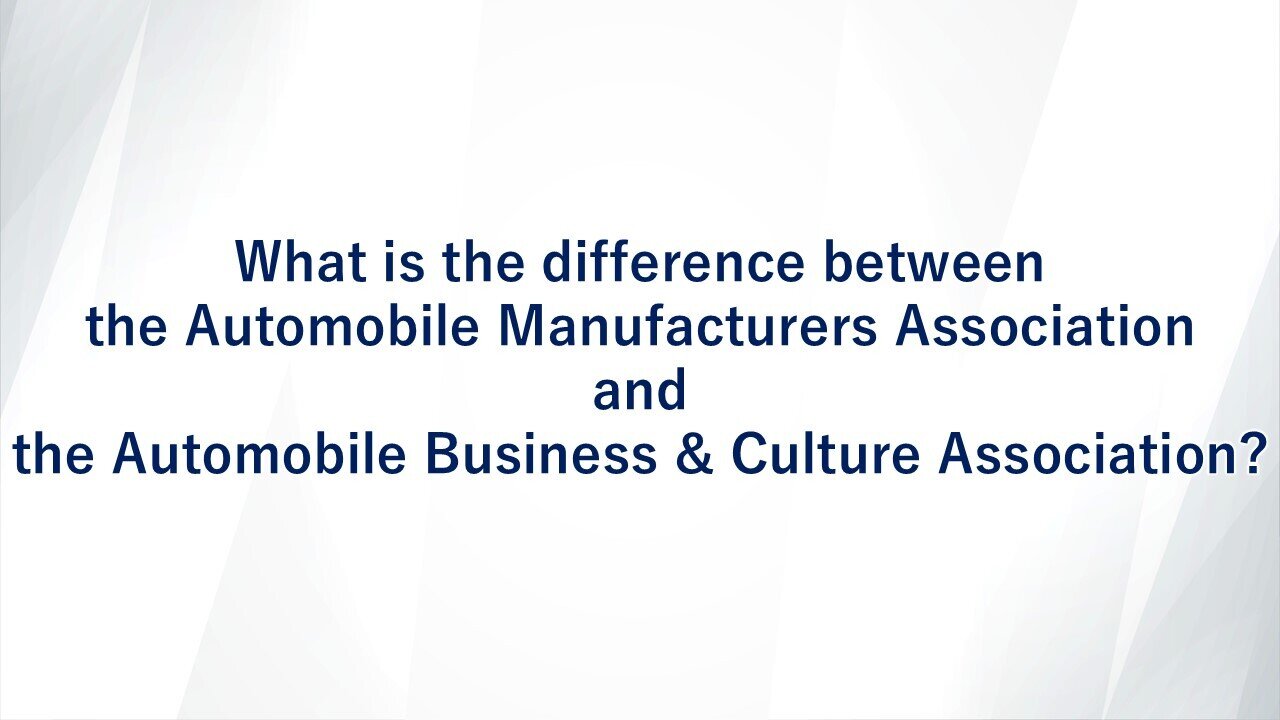
The difference between the two is, in a nutshell, who we are trying to move and inspire.
As chairman of JAMA, I spoke of making the auto industry something the country can rely on. In that case, I was trying to mobilize the support of the national government.
By contrast, through the Automobile Business & Culture Association, I believe we should seek to move the hearts of ordinary people.
In order for cars to become a culture the country is proud of, we need to move the hearts of the Japanese people, rather than government officials.
For me, that is the main difference between JAMA and the Automobile Business & Culture Association. I think this difference is also reflected in the organizations on our membership roll.
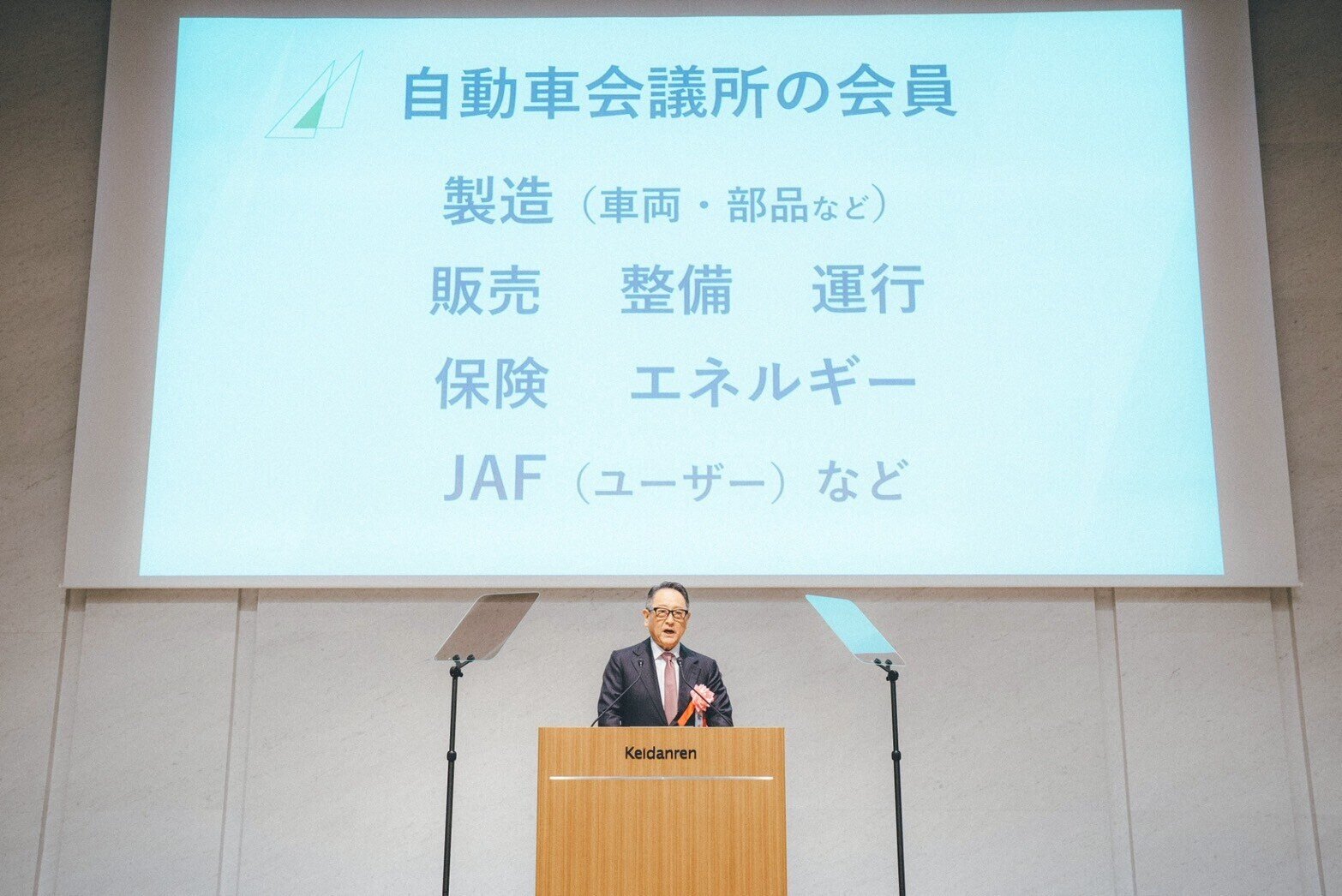
Whereas JAMA consists of manufacturers, ABAJ brings together all kinds of industry groups and companies involved in automobiles, spanning sales, maintenance, service operation, as well as insurance and energy. From this year, we also count JAF (Japan Automobile Federation), a user organization, among our members.
We work in many different areas, handling a wide variety of jobs related to cars.
If all of us began taking action to make cars the culture of Japan, I believe we could make a greater contribution to the country’s economy and national strength.
The Automobile Business & Culture Association of Japan. While many people may not be familiar with our organization, I hope that from today, ABAJ and our slogan will remain in everyone’s mind. Thank you for your time.
